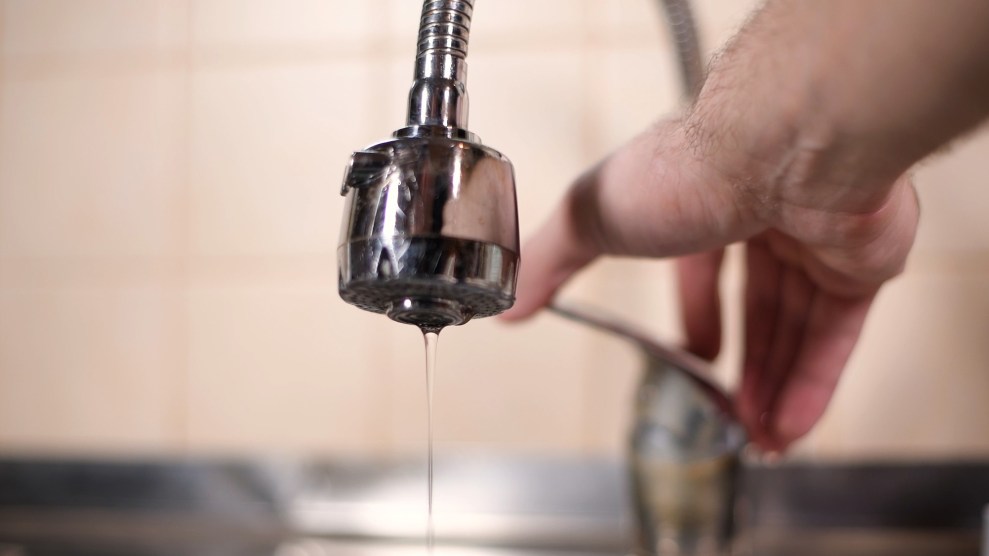
Vyacheslav Dumchev/Getty
This story was originally published by The Guardian and is reproduced here as part of the Climate Desk collaboration.
Legislation to cancel utility debts for millions of low-income households and bail out struggling utility companies was introduced in the US Senate last week.
Jeff Merkley, a Democratic senator from Oregon, is proposing a $30 billion low-interest loans program for electric, water, sewage, and broadband providers as part of the Maintaining Access to Essential Services During the Covid Emergency Act of 2021.
The loans would allow utilities to recoup money in order to stay afloat without resorting to fines and shutoffs. Utilities have long justified using disconnections as a way to force people to keep up with bills.
“We cannot rebuild the strength and resilience of America from the ground up if millions of families lose electricity, water and broadband, we have to keep these essential services turned on if people are going to get back on their feet,” Merkley told the Guardian. “This is like PPP for utilities. If we can get the concept in place, we can later add more funds if needed.”
It’s unclear how much is owed to utility companies nationwide, though it is probably significantly more than the $30 billion earmarked in the bill.
A survey by the California state water board earlier this year found at least 1.6 million households were behind on water bill payments due to the pandemic, with debt totaling at least $1 billion. At least 25 small and medium-sized water utilities—1 percent of the total—were at imminent risk of going under. Earlier this month Governor Gavin Newsom announced $2 billion in aid for utilities to help keep the taps and lights on for millions of low-income residents.
In Merkley’s bill, the loans would be conditional on utilities canceling debts for low-income households. Two years after the end the pandemic, public and small utilities could see the loans forgiven for the amount of outstanding arrears, as long as they had not reverted to using punitive measures. Utilities that disconnect or fine customers would be obliged to immediately repay the loan in full.
“The conditions are very much the heart of the bill. The goal is to enable utilities to do the right thing but not suffer catastrophic economic consequences as a result,” added Merkley.
Even before the pandemic, the cost of water and sewage was a growing problem. A landmark investigation by the Guardian last year found millions of Americans were at risk of being disconnected or losing their homes due to increasingly unaffordable water bills. People of color have been disproportionately affected by rising bills and punitive measures.
Detroit, a city which has disconnected tens of thousands of mostly Black residents as part of a widely condemned debt recuperation program, was the first to order a moratorium as the pandemic took hold. Thousands of public utilities and numerous states followed, and at one point about two-thirds of Americans were protected from shutoffs.
But shutoffs recommenced as moratoriums expired, leaving millions of families facing debts accumulated over the past year and new monthly bills.
Mary Grant, a campaign director from the non-profit Food and Water Watch, said: “The economic devastation of the pandemic is threatening to crush families with billions of dollars of water debt.”
Affordability is just one part of America’s Water Crisis. Federal investment in water systems peaked in 1977, since when local utilities have been mostly forced to raise money through higher bills and commercial loans to pay for infrastructure upgrades and environmental cleanups. Last month, the Senate passed the Drinking Water and Wastewater Infrastructure Act 2021 which would invest $35 billion over five years to improve access to clean, affordable drinking water and sanitation.
Both bills have been welcomed by advocates and trade groups as important first steps: an estimated $35 billion a year over the next 20 years is needed to ensure universal access to water and sanitation.
Grant added: “We must guarantee safe, clean water for all.”















